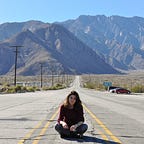Did we really need Coronavirus to build a better world?
These strange days of quarantine. As soon as we slowed down and the dust settled, many little big things abruptly changed. So abruptly that they became suddenly evident to our eyes.
The right of getting bored
Many of us have always seen their life as an empty agenda waiting to be filled by the boss, the personal trainer, the exotic guru. Those who dared not to be excessively busy were invariably labelled as lazy people lying on the sofa while watching TV and eating chips. The problem is that for Mr./Miss Agenda this has always represented the only alternative to an obsessively planned life. No matter what scientists say about the importance of boredom in triggering individual productivity and creativity, children included. No matter what the ancient philosophers already wrote about the importance of having free time, like Cicerone, who said: “You don’t strike me as a free man if you do not enjoy otium from time to time.” However, with this forced quarantine, even Mr./Miss Agenda are starting to realize that being busy does not always correlate with a full, productive and creative life, and that the Latin word otium does not translate to laziness.
A better work-life balance
Let’s take Italy as an example: while more and more big companies have started structured smart working over the last years, the opposite is true for Public administration and small-medium companies. Different justifications are generally raised to explain such gap, but the main reason is the common belief among Italians that people who work at home are less productive. This prejudice has remained strong and alive for years, despite numerous studies showing that flexible workers are actually more productive. Eventually, it was defeated by Coronavirus: in the last weeks, more and more Italians are experiencing smart working and its benefits.
A cleaner planet
How many times have scientists warned us about the catastrophic consequences of pollution? For good reasons, we used to blame governments and industry for not taking care of our planet. However, we were much less severe with our unsustainable habits. We used to blame oil companies, but we could not live without getting on an airplane and flying to London or Paris for the weekend, to use our car for any insignificant need, to keep the heating at maximum instead of wearing a warmer sweater. We were so active on social networks about climate change, the same social networks where we used to feed our ego by posting pictures of us climbing a mountain or getting lost in a forest thousands of miles away from home. For my generation, the most important factor on choosing holiday destination is its instagrammability, shamefully. With the coronavirus, we were forced to stop, thus reducing our impact on our planet. After few weeks, pollution has decreased and cities have become cleaner.
Scientists. Scientists everywhere.
I do not know about your country, but in Italy scientists are becoming more and more popular in these days. Epidemiologists, virologists, mathematicians, statisticians are constantly populating television shows. Yes, we still have this weird habit of letting anyone talk about any subject, no matter how complex it is. However, in these days, there is a clear and strong focus on what scientists think. That’s interesting. It implies that when people are afraid, they tend to listen to those who know. It would be great if we adopted the same reasoning during good times.
Sense of community
The city of Naples is famous for the tradition of “caffè sospeso” (literally, “suspended coffee”), an act of humanity which consists of anonymously paying a cup of coffee in advance for a person in need. Unfortunately, the modern era seems to benefit those who are self-assertive, self-centered and self-obsessed. In this challenging period, however, the Self people are not the protagonists of our days. A new sense of community is emerging, whose roots are philanthropy and solidarity. The “spesa sospesa” has been introduced in several Italian cities and, as for the “caffè sospeso”, it is a gesture of humanity of people that pay for the grocery shopping of those who are in need. Many hotels owners have offered their hotels to accomodate the Coronavirus patients, doctors and nurses. About 200,000 people donated a total of about 4 million euro to build a new hospital in Milan. These are just few examples of the actions that are contributing to build a strong sense of belonging, which makes people not feel isolated, even if they literally are.
Revolutions come, but sometimes we can help them coming.
